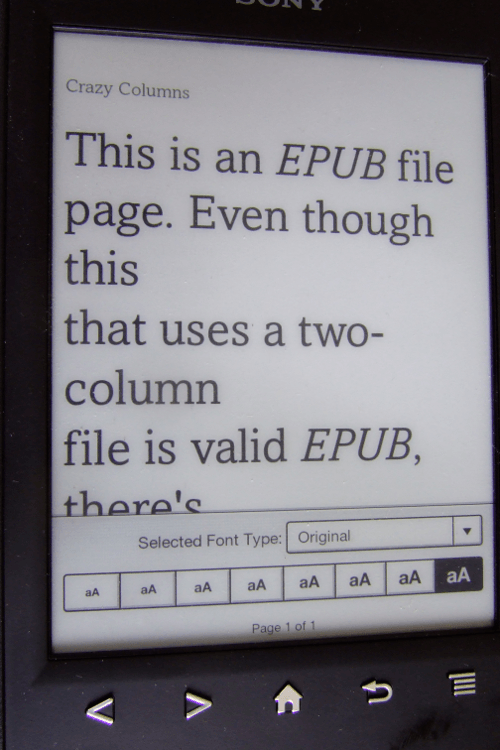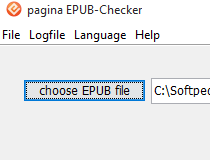
With Amazon disapproving of sideloading to their devices as a means to preview files, the need for a mobi for review purposes had become obsolete. Over the last several months, when clients have asked, Westchester has been recommending only receiving the ePub. Though it did not state it in that message, it was applicable to reflowable ePubs. In late 2020, Amazon recommended using ePub format for publishing new titles and updating previously published titles for users who loaded mobi into Kindle Previewer (KP3). Scott Keeney, Westchester’s Senior Composition and Digital Production Manager, outlines what Amazon’s changes mean for publishers: As a result, epubs created with CS4 do not validate with epubcheck-1.0.5.Amazon has announced that effective June 28, when uploading ePub content for new books or updates to previously published content on their platform, mobi files will no longer be supported. InDesign CS4 does not yet ask for this pub-date metadata when creating an epub, nor create it in its exported epubs. It should always have done so, since correct pub-date metadata is required by the OPF part of the epub specification. If MM is provided, a two-digit day (DD) is optional.īackground: As of version 1.0.5, EpubCheck started checking for correctly formed pub-date metadata in epubs. That date format means the four-digit year (YYYY) is mandatory, and a two-digit month (MM) is optional. That is, instead of an empty self-closing dc:date tag, you’re inserting an opening dc:date tag, with the date in the format YYYY], and closing the tag. (If you don’t have a tag, just add the line.)
COULD NOT START THE EPUB CHECKER CODE
To fix the date: in the metadata section of your content.opf file, replace this code If you check your epub with epubcheck version 1.0.5 or later, you may get this error message: ERROR: title.epub/OEBPS/content.opf(2): date value '' is not valid, YYYY] expected Troubleshooting the epub's 'date' metadata Or you could read this post by wildly opinionated stirrer Mike Cane, which sums up the issue well. For instance, those by Laura Dawson or Michael Cairns. There are lots of sensible pieces written about metadata.


In this very useful note on identifiers by Liza Daly, she uses ISBNs as identifiers like this: urn:isbn:9780596158347 Further reading on metadata There are slight variations on how metadata can be entered in an epub. You can add more metadata if needed, using Dublin Core tags.įor example, you can put a book’s blurb or jacket copy in a dc:description tag. The ‘dc’ stands for Dublin Core, a standardised list of metadata items. the book's title is "Motherhood and Me".this ebook has two identifiers, an ISBN and a UUID.These are our minimum recommended metadata tags. You’ll see a list of metadata that looks something like this: To edit it, open content.opf (in a text/code editor like Textpad) and find the tag. The metadata for an epub is stored in the content.opf file. a date of publication, at least the year.a unique identifier of some sort (such as an ISBN or UUID InDesign generates a UUID for you when you export to epub).There is an excellent description of metadata information on the MobileRead wiki.Īn epub must include at least these items of metadata to be valid:


The more metadata you include in an ebook, the better.
COULD NOT START THE EPUB CHECKER SOFTWARE
For ebooks, metadata must be inside the ebook, stored in a standardised way, so that software systems (like your personal library of ebooks or an aggregator’s large-scale asset management system) can organise the books in a sensible way.


 0 kommentar(er)
0 kommentar(er)
